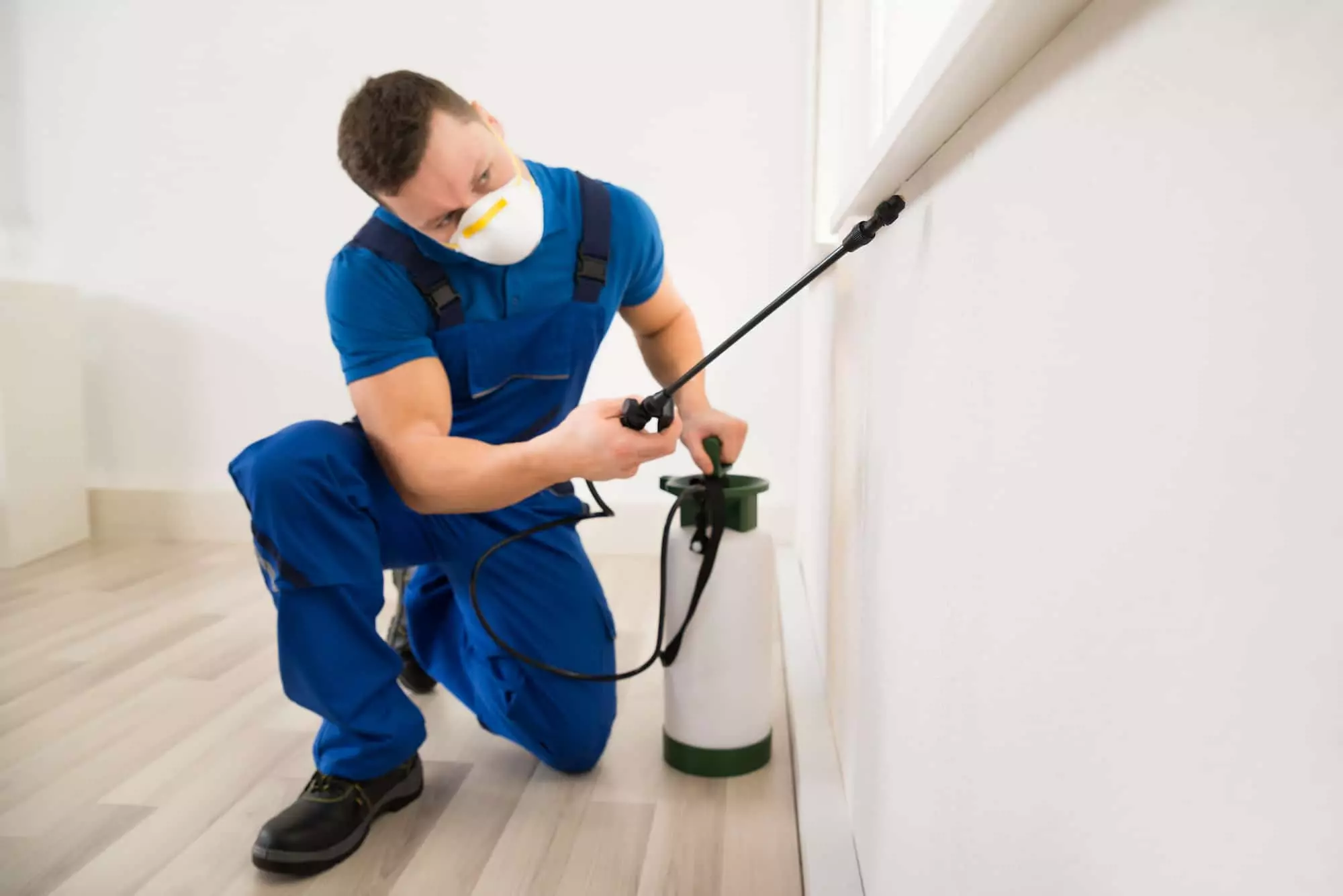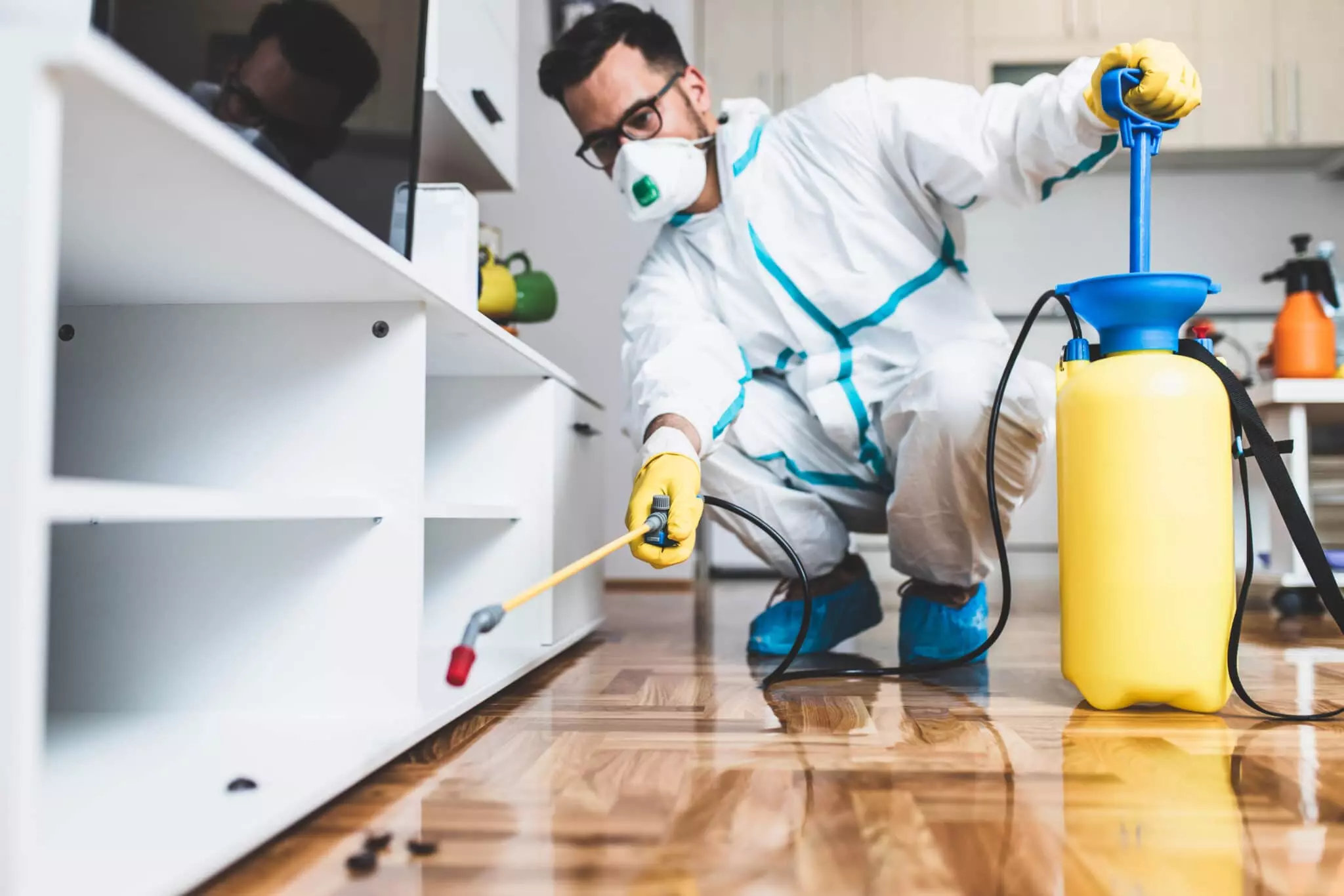Top Insect Control Solutions to Keep Your Home Pest-Free
From identifying common household bugs to implementing all-natural and chemical control options, each action plays an important role in safeguarding your living setting. Comprehending these numerous bug control options is necessary, yet the performance of each technique can differ substantially based on certain scenarios.
Identify Common Family Vermin
Family bugs can disrupt the convenience and safety and security of any home, making it important to recognize them immediately. Typical house parasites consist of bugs and rodents that can cause damages to home and pose health and wellness threats. Among the most common are termites, ants, and cockroaches.
Ants, particularly, are social insects that can get into kitchens in search of food. They flourish in warm, damp environments and are commonly discovered in shower rooms and cooking areas.
Termites, on the various other hand, are wood-destroying insects that can significantly compromise the structural honesty of homes. Their visibility is commonly detected through indications such as mud tubes or disposed of wings.
Rats, including rats and mice, are an additional typical household insect. They are not just a problem but additionally present wellness threats by contaminating food and spreading conditions. Identifying these parasites early is important for efficient management, making the most of the chances of an effective eradication and protecting the home setting.
Preventive Measures and Maintenance
Reliable pest control begins with safety nets and normal maintenance to minimize the risk of invasions. Homeowners need to focus on an extensive assessment of their homes to identify potential access points for bugs, such as fractures in wall surfaces, gaps around home windows, and spaces under doors. Sealing these openings with caulk or weather removing can dramatically decrease the chance of pests getting in.
In addition, preserving a clean setting is critical. Regularly decluttering locations, especially attic rooms and cellars, can get rid of concealing areas for insects. It is also crucial to store food in impermeable containers and without delay address spills and crumbs. Outdoors, homeowners ought to maintain rain gutters tidy and make sure that standing water is removed to prevent breeding premises for pests.
Landscaping practices play a duty as well; trimming trees and shrubs away from the home can stop insects from utilizing them as pathways. On a regular basis checking and maintaining displays on doors and home windows will certainly better shield against unwanted intruders. By carrying out these preventive actions and devoting to consistent maintenance, home owners can dramatically reduce the threat of bug infestations, making sure a healthier and more comfortable living atmosphere.
All-natural Insect Control Techniques
Numerous all-natural parasite control techniques offer eco-friendly options to traditional chemical therapies. These methods not just minimize injury to valuable organisms yet also promote a much healthier living environment.
One reliable method is making use of important oils, such as peppermint or tea tree oil, which can prevent numerous pests due to their strong scents. Another popular alternative is diatomaceous earth, a natural powder originated from fossilized algae that can kill insects by dehydrating them upon contact.
Buddy growing is additionally a beneficial technique; certain plants, like marigolds or basil, can fend off pests while drawing in advantageous bugs. In addition, presenting all-natural predators, such as ladybugs for aphid control, can considerably minimize parasite populations without chemicals.

Eventually, incorporating these all-natural pest control methods can create a effective and lasting parasite monitoring approach, ensuring your home remains pest-free while straightening with environmental conservation initiatives.
Chemical Insect Control Options
When dealing with consistent pest problems, chemical pest control choices offer a targeted method to managing undesirable microorganisms. These services typically include using chemicals created to eliminate or prevent bugs efficiently. Chemical insect control can interior pest control be classified right into 2 primary kinds: insecticides, which target bugs, and herbicides, designed for plant parasites.
Insecticides may can be found in numerous kinds, consisting of granules, lures, or sprays, enabling homeowners to select the approach that best suits their needs. Sprays can offer immediate outcomes, while baits may offer more prolonged control. It is necessary to pick products that are appropriate for the certain kind of insect being attended to, in addition to secure for usage within a household atmosphere.
While chemical insect control can generate fast outcomes, it is important to adhere to tag instructions meticulously to minimize threats to humans, pet dogs, and advantageous bugs. Integrating chemical approaches with preventive actions, such as securing access factors and preserving cleanliness, can improve efficiency and lower the probability of future invasions. By using liable techniques, chemical insect control options can be an essential element of a total pest management method.
Professional Extermination Services

Specialist exterminators utilize a variety of methods, consisting of incorporated bug administration (IPM), which stresses making use of eco pleasant and non-toxic solutions whenever feasible. This approach not just targets the current invasion yet also concentrates on preventing future events by dealing with the underlying problems that draw in parasites.
In addition, professional services often offer guarantees and follow-up sees to make sure the performance of their treatments. This continuous assistance can provide homeowners comfort, knowing that their living setting is being monitored for any kind of signs of parasite renewal. Unlike DIY techniques, which might produce short-lived alleviation, specialist extermination services provide resilient outcomes, making them a worthwhile investment for preserving a pest-free home.
Final Thought
In summary, maintaining a pest-free home demands a complex approach that encompasses recognition of typical bugs, application of safety nets, and factor to consider of both chemical and all-natural control approaches. Specialist extermination services work as an important resource for dealing with serious invasions. By embracing incorporated pest monitoring visit this site right here techniques, house owners can make sure a lasting service that prioritizes security and effectiveness, ultimately guarding living rooms from undesirable intruders while advertising a much healthier atmosphere.
When facing persistent bug problems, chemical insect control alternatives give a targeted method to managing unwanted organisms - coquitlam pest control. Chemical insect control can be classified into two main kinds: pesticides, which target insects, and herbicides, developed for plant insects

These services utilize experienced parasite control specialists that conduct comprehensive examinations to identify the extent of an infestation and the certain insect varieties entailed.In summary, maintaining a pest-free home requires a diverse approach that includes recognition of typical parasites, implementation of preventive procedures, and consideration of both chemical and all-natural control methods.